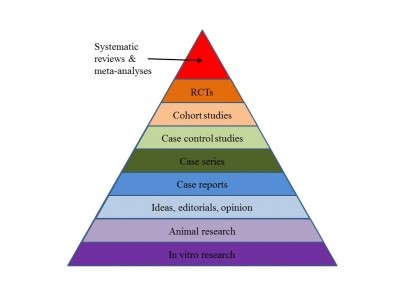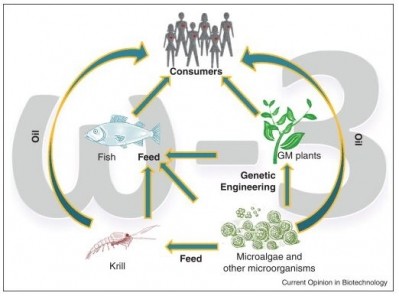Omega-3 supplements may boost neuropsychological measures for kids who need most support

Three months of supplementation with omega-3 was associated with significant improvements in a variety of cognitive measures, report scientists from the Autonomous University of Ciudad Juarez (Mexico), the University of Granada (Spain), and the University of North Carolina (USA).
“As far as we know, this is the first study of omega-3 supplementation where the magnitude of change is considered for each participant,” they wrote in Research in Developmental Disabilities.
“We found large changes in the neuropsychological variables in malnourished children supplemented with omega-3 that were not observed in placebo malnourished children. These results show significant increases over 70% of children in the supplemented group and throw light on the clinical significance beyond the statistics relevance.”
“These improvements are clinically significant and it has been obtained in 8–12 year children after controlling for most of the child and mother confounders.”
Malnourishment at home
While numerous studies have investigated the potential impact of omega-3 supplements on the cognitive performance of infants and toddlers, data for older malnourished kids is scarce.
While the study included children in Mexico, the findings have implications for children in the US, with an estimated 14.5% of American households being classed as food insecure at some point during 2012, and 5.7% classed as having very insecure, according to a 2013 report from the US Department of Agriculture. This means that the households lacked access to enough food for an active, healthy life for all household members.
The USDA report stated: “Children were food insecure at times during the year in 10.0% of households with children. These 3.9 million households were unable at times during the year to provide adequate, nutritious food for their children.”
“Malnutrition is one of the most important nutritional issues during childhood because it is in the first years of life when growth is intensive and there is still ripeness of diverse organs,” explained the authors of the new paper. “Therefore, the longer malnutrition lasts in a young child the consequences will be more serious […] At long term, malnutrition can result in damage of cognitive functions and academic performance.”
Trial design
To test if omega-3 supplements could impact cognitive performance in malnourished children, the researchers recruited 50 malnourished 8- to 12-year-olds to participate in their randomized, double-blind, placebo-controlled study. The children were randomly assigned to receive omega-3 supplements providing daily DHA and EPA doses of 180 mg and 270 mg, respectively.
The results showed that, after three months of supplementation, over 50% of children in the omega-3 group showed greater improvement in 11 of the 18 neuropsychological variables studied.
In particular, coordination, processing speed, attention, perceptual integration, and executive function were improved in over 70% of the children in the omega-3 group.
While benefits were observed for many neuropsychological variables, no benefits were observed for memory, said the researchers.
“This could show the specificity of the effects of omega-3 and would suggest not using global measures of cognitive performance. Moreover, this effect is not dependent on improved processing speed as memory tests measure precision, not speed,” they wrote.
“However, these results do not support our initial hypothesis that expected an improvement in memory due to previous findings on the role of omega-3 in the number of neurons in the hippocampus. Although this improvement has occurred in the intervention group, this was also evident in the other groups, showing that memory is more sensitive to external stimulation to the effect of omega-3.”
Applause
Commenting independently on the study, Harry Rice, PhD, VP of regulatory & scientific affairs for the Global Organization for EPA and DHA Omega-3s (GOED), told NutraIngredients-USA that he applauds the investigators for conducting this study.
“Given the low level of reported O-3 intake, there's no doubt that these children would benefit from taking a supplement of EPA+DHA,” he said. “Unfortunately, there were some experimental design issues. For example, the recommended time between testing of children using the WISC-IV is one year, not three months (present study). Retesting too soon can result in practice effects - gains in scores on cognitive tests that occur when a person is retested using the same instrument too often. While one could argue that the practice effect would be equal in both groups, this is something that should have been addressed in the discussion.
“This investigation warrants repeating with a modified experimental design.”
Source: Research in Developmental Disabilities
Volume 35, Issue 4, April 2014, Pages 861–870
“Clinical significance of neuropsychological improvement after supplementation with omega-3 in 8–12 years old malnourished Mexican children: A randomized, double-blind, placebo and treatment clinical trial”
Authors: V. Portillo-Reyes, M. Perez-Garcia, Y. Loya-Mendez, A.E. Puente















